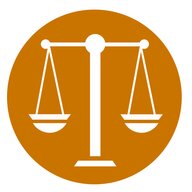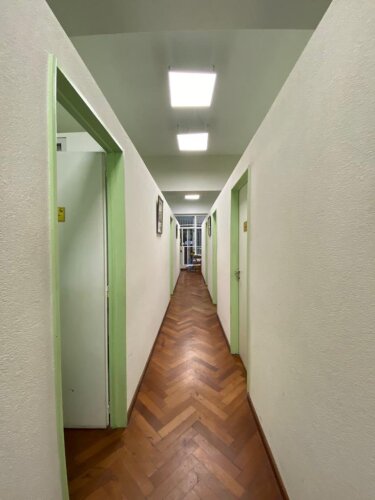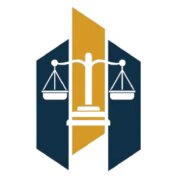Best Native People Lawyers in Buenos Aires
Share your needs with us, get contacted by law firms.
Free. Takes 2 min.
List of the best lawyers in Buenos Aires, Argentina
About Native People Law in Buenos Aires, Argentina:
Native People in Buenos Aires, Argentina refer to the indigenous communities living within the city. These communities have unique cultural practices and rights that are protected under local and national laws. Legal issues concerning Native People in Buenos Aires often involve land rights, cultural preservation, and discrimination.
Why You May Need a Lawyer:
There are several situations where you may need a lawyer to represent you in matters concerning Native People in Buenos Aires. These may include land disputes, civil rights violations, discrimination cases, and cultural heritage protection. A lawyer can help you navigate the complex legal system and ensure that your rights are protected.
Local Laws Overview:
Local laws in Buenos Aires, Argentina recognize the rights of Native People and aim to protect their cultural heritage. These laws include provisions for land rights, access to education and healthcare, and protection against discrimination. It is important to be aware of these laws if you are a member of the indigenous community or if you are seeking legal assistance on behalf of Native People.
Frequently Asked Questions:
1. Can Native People in Buenos Aires own land?
Yes, Native People in Buenos Aires have the right to own land and have their property rights protected under local laws.
2. Are there specific schools or healthcare facilities for Native People in Buenos Aires?
There are initiatives to provide cultural-sensitive education and healthcare services for Native People in Buenos Aires, although challenges still exist.
3. How can I report discrimination against Native People in Buenos Aires?
You can report discrimination to the local authorities or seek legal assistance from organizations that specialize in indigenous rights.
4. What legal protections do Native People have in Buenos Aires?
Native People in Buenos Aires are protected by laws that recognize their cultural rights, land rights, and prohibit discrimination based on ethnicity.
5. Can I participate in traditional ceremonies with Native People in Buenos Aires?
You should respect the cultural practices of Native People and seek permission before participating in any traditional ceremonies.
6. How can I support indigenous communities in Buenos Aires?
You can support indigenous communities by advocating for their rights, promoting cultural awareness, and supporting local initiatives that benefit Native People.
7. Are there organizations that provide legal assistance to Native People in Buenos Aires?
Yes, there are organizations that specialize in providing legal assistance to Native People in Buenos Aires. These organizations can help you navigate the legal system and advocate for your rights.
8. What are the common legal challenges faced by Native People in Buenos Aires?
Common legal challenges faced by Native People in Buenos Aires include land disputes, discrimination, lack of access to basic services, and cultural preservation.
9. Can non-indigenous individuals seek legal help on behalf of Native People in Buenos Aires?
Yes, non-indigenous individuals can seek legal help on behalf of Native People in Buenos Aires, especially if they are experienced in indigenous rights issues and sensitive to cultural differences.
10. How can I learn more about the history and culture of Native People in Buenos Aires?
You can learn more about the history and culture of Native People in Buenos Aires by visiting museums, attending cultural events, and engaging with indigenous communities in a respectful manner.
Additional Resources:
For legal advice and assistance related to Native People in Buenos Aires, you can contact the National Institute of Indigenous Affairs (INAI) or local indigenous rights organizations such as the Indigenous Council of Buenos Aires.
Next Steps:
If you require legal assistance concerning Native People in Buenos Aires, it is important to consult with a lawyer who has experience in indigenous rights issues. You can reach out to indigenous rights organizations or legal aid clinics for guidance on how to proceed with your case. Remember to respect the cultural practices and rights of Native People throughout the legal process.
Lawzana helps you find the best lawyers and law firms in Buenos Aires through a curated and pre-screened list of qualified legal professionals. Our platform offers rankings and detailed profiles of attorneys and law firms, allowing you to compare based on practice areas, including Native People, experience, and client feedback.
Each profile includes a description of the firm's areas of practice, client reviews, team members and partners, year of establishment, spoken languages, office locations, contact information, social media presence, and any published articles or resources. Most firms on our platform speak English and are experienced in both local and international legal matters.
Get a quote from top-rated law firms in Buenos Aires, Argentina — quickly, securely, and without unnecessary hassle.
Disclaimer:
The information provided on this page is for general informational purposes only and does not constitute legal advice. While we strive to ensure the accuracy and relevance of the content, legal information may change over time, and interpretations of the law can vary. You should always consult with a qualified legal professional for advice specific to your situation.
We disclaim all liability for actions taken or not taken based on the content of this page. If you believe any information is incorrect or outdated, please contact us, and we will review and update it where appropriate.













